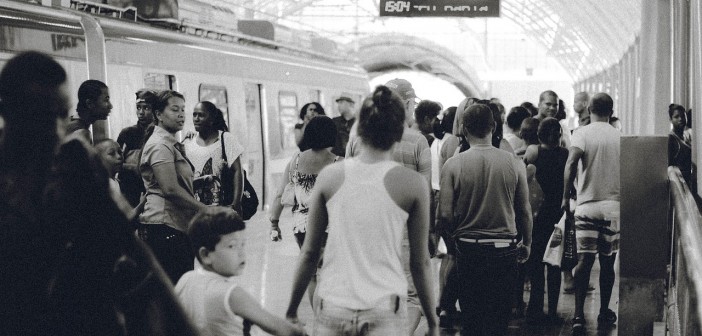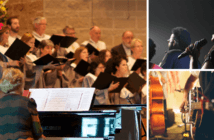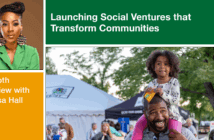For four years, I’ve been the pastor of Women at the Well, a congregation within a women’s prison in Mitchellville, Iowa. I meet some amazing women there. When I hear their stories, I can’t help thinking that I haven’t met many women like them in the churches I’ve known and pastored. It’s not because they aren’t in our communities. I used to think that drug abuse, domestic violence, economic hardship, and incarceration are problems that exist somewhere else. I know better today. Our neighbors suffer with concerns like these, down the street and right next door, no matter what our town looks like.
Our churches, in turn, sometimes shield us from the true diversity of our communities. In subtle ways, they can seem like fortresses that tell those outside that they are unworthy and unwelcome. Think about it: If you were coming out of prison, or if someone in your family was struggling with addiction, would the church feel open to you? If no one has yet believed your stories of abuse, would you see the church as a potential haven? If one of “those people” walked into your church, would they be welcomed?
Our churches sometimes shield us from the true diversity of our communities.
I tell our women they’ll find a church that longs to be gracious to them. Here are some ways:
Watch. In your church and on your street, keep your eyes open. Make it a spiritual discipline to be watchful and open to what you see, and resist becoming walled-off from those who look “different.” Be curious.
Wonder. Suspend the part of you that would rush to judgment. Compassion increases when you take the time to ask yourself: “What might have happened to this person to make her behave this way?” Many persons deal with challenges that you can’t see. What would be different if you gave them the benefit of the doubt, and simply loved them?
Be a safe listener. Make yourself into someone in whom others can confide. If a person or their family member or neighbor wants to talk about prison, or a history of drug use, or suicidal feelings, learn to hear what is being said without becoming anxious and judgmental. Practice. Look for the shared humanity that connects you with this person.
Reduce your church’s barriers. Look critically at your church and the ways it may communicate that it’s only for certain people. Consider signage, the use of jargon, how guests are welcomed, who sits where, and the like. Notice who is left out when The Peace is passed, or when people are invited to something. Stand in the gap for the “outsiders.”
Watch your language. Pay attention to how you talk about “those people.” Ask: Would you say it that way if you thought they were sitting next to you? Using words like “neighbors,” “friends,” and “brothers and sisters” changes the way we think.
Reach across the walls. Dare to reach out. Wave. Speak first to that neighbor who may look or live differently from you. Invite her to your neighborhood cookout or to your worship service. Push past any reluctance based on your perception of his lifestyle, and get to know this precious child of God.
Don’t just “do mission.” Build relationships. Move beyond projects where “good church people” simply take something we have (clothes, food, money, expertise, faith) to “those people” that we think need it. Strive for opportunities to build relationships and to work with — not for — others. Are you learning people’s names and hearing their stories? Better yet, are they also hearing yours? Keep pushing toward actual relationship, not just serving from a place of safety.
Maintain boundaries. You are not here to save everyone. When you offer care and connection, do so out of your own love and character, not to receive anything back, including appreciation, from that family. Allow others to make their own mistakes, but maintain connection and encouragement where possible. If more specific boundaries are necessary for your safety or theirs, seek help in establishing and maintaining those.
Pray. Hold your neighbors and newfound friends in prayer. If you haven’t met them yet, pray for those you don’t know. Ask God to help you notice and connect with persons near whom God has placed you.
Related Resources:
- Connect with Your Neighbors Resource
- Everyone Welcome? by Gary A. Shockley
- By Any Means Necessary by Jacqueline Lewis
- The New Church Family by Ann A. Michel






